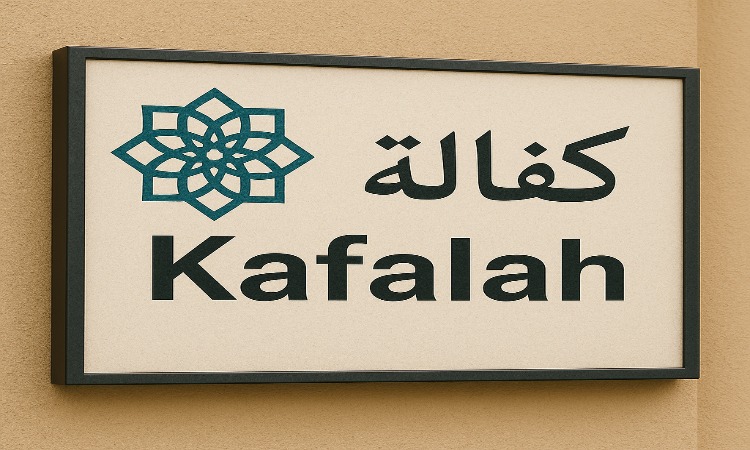Understanding Kafalah in Islamic Finance
1. Introduction: Meaning of Kafalah
Kafalah, in Islamic jurisprudence, refers to a contract of guarantee where one party (the guarantor or kafil) agrees to assume responsibility for the debt or obligation of another party (the principal or makful ‘anhu) towards a third party (the obligee or makful lahu). The term "Kafalah" is derived from the Arabic root word "kafl," which means "to guarantee," "to take care of," or "to protect." It establishes a legal and moral commitment by the guarantor to fulfill an obligation if the principal fails to do so.
Kafalah is a third-party guarantee agreement. In the context of Islamic finance, Kafalah is used to secure loan agreements or deferred payment transactions. Under this guarantee, a third party (guarantor) provides a guarantee for the repayment of a debt in case the debtor fails to fulfill their obligations to the creditor. If the debtor does not repay the debt, the creditor can turn to the guarantor (the third party) to obtain the outstanding amount. Kafalah provides additional security to the creditor and ensures the fulfillment of debt obligations.
The concept plays a vital role in reducing risk, facilitating transactions, and building trust among parties in various commercial and financial settings. It is particularly important in contexts where the original debtor lacks credibility, collateral, or track record, as the guarantor's involvement enhances trust.
2. Legitimacy from the Sharia Perspective
Kafalah is well established in Islamic jurisprudence and is considered permissible and commendable under Sharia. It is supported by the Quran, Sunnah, and the consensus (ijma') of Islamic scholars. The Quran encourages acts of cooperation and assistance, which Kafalah embodies.
In the Quran Allah says: “...He made her grow in a good manner and put her under the care of Zakariya (Zachariah)...” (Al Quran 03:37), and, “They said: “We have lost the (golden) bowl of the king and for him who produces it is (the reward of) a camel load; and I will be bound by it.” (Al Quran 12:72).
Here is also a Hadith for reference: Jabir Ibn Abdullah (May Allah be pleased with him) narrated: “The Apostle of Allah (Peace be upon Him) would not perform the funeral prayer over a person who died while the debt was due from him. A dead Muslim was brought to him and he asked: Is there any debt due from him? They (the people) said: Yes, two Dirhams. He said: Pray yourselves over your companion. Then Abu Qatadah al-Ansari (May Allah be pleased with him) said: I shall pay them, Apostle of Allah. The Apostle of Allah (Peace be upon Him) then prayed over him. When Allah granted conquests to the Apostle of Allah (Peace be upon Him), he said: I am nearer to every believer than himself, so if anyone (dies and) leaves a debt, I shall be responsible for paying it; and if anyone leaves property, it goes to his heirs.” (Abudawud, Book #22, Hadith #3337).
3. Principles of Kafalah
The primary principle underlying Kafalah is the transfer of liability without the transfer of debt. The responsibility to settle the obligation shifts to the guarantor without nullifying the original debtor’s duty. This ensures both parties remain accountable. Key principles include:
- Voluntariness and consent of the guarantor: The guarantor must agree freely, as Kafalah cannot be imposed.
- Existence of a valid underlying obligation:A guarantee must be anchored to an actual, legally recognized obligation; it cannot stand independently without a valid underlying liability.
- Clear identification of the parties involved: All parties (guarantor, principal, and obligee) must be clearly known.
- No dual compensation: The guarantor cannot earn a profit merely for providing a guarantee, upholding fairness and discouraging exploitation. These principles collectively ensure that the contract remains ethical, transparent, and protective of all parties’ rights.
4. Conditions for the Validity of Kafalah
A Kafalah contract must meet the following conditions to be valid under Islamic law:
- Consent of the guarantor: Must be given freely and without coercion.
- Legal capacity: All parties must be legally competent and capable of entering a binding agreement.
- Valid obligation: The type, amount, and scope of the obligation must be clearly defined.
- Clarity of parties: All involved parties must be clearly known.
- Sharia compliance: The contract must avoid elements prohibited by Sharia, such as riba (interest), gharar (excessive uncertainty), and maysir (gambling).
These conditions collectively uphold the enforceability, integrity, and ethical soundness of the Kafalah arrangement.
5. Principles of Operation
- The principal (makful ‘anhu) needs finance and approaches the obligee (makful lahu) for the same. The obligee agrees to finance but requests the principal to provide a surety.
- The principal requests a third party or a guarantor (kafil) to guarantee the finance to the obligee. The guarantor guarantees the finance.
- In this transaction, the obligee has the right to collect the finance equally from both the principal and the guarantor. In case of the principal’s default, the guarantor is obliged to pay the amount due to the obligee.
Kafalah is typically documented through a formal agreement to provide legal certainty and prevent disputes. Its operation can vary in structure:
- Joint or several: One or more guarantors may share or individually bear the obligation.
- Limited or unlimited: The guarantor’s liability may either be capped at a specific amount or left without a fixed limit. An unlimited guarantee means the guarantor is responsible for the entire amount of the debt as it stands, without placing any conditions or limits. This type of guarantee mirrors the terms of the original obligation. In contrast, a limited guarantee allows the guarantor to set boundaries—for example, guaranteeing only a part of the debt, or agreeing to pay only if the debt is not settled after a certain date. A limited guarantee can also include time-based conditions: for instance, if the guarantee is agreed upon at the beginning of a contract and defers payment, it might delay the creditor’s right to demand repayment. On the other hand, a deferred guarantee for an existing debt could protect the guarantor from immediate liability.
- Conditional or absolute: Guarantees can also differ based on how and when the guarantor becomes liable. An absolute guarantee takes effect as soon as the principal defaults, without any further requirements. A conditional guarantee, however, includes specific conditions that must be met before the guarantor is obliged to pay. For example, the guarantor might agree to pay only if a particular event occurs, such as failure to repay by a certain date. However, Sharia requires that such conditions do not contradict or nullify the basic purpose of the guarantee. If the condition essentially cancels the guarantor’s duty, it is treated as void and the guarantee is considered binding immediately.
The guarantor’s liability begins once the conditions are fulfilled or the principal defaults. Upon fulfillment, the guarantor obtains the right to seek reimbursement from the principal debtor. This principle of indemnification is essential for maintaining balance and fairness in the arrangement.
6. Modern-Day Application in Islamic Finance
In the modern Islamic finance landscape, Kafalah serves multiple purposes, supporting credit, trade, and insurance mechanisms. Common uses include:
- Bank Guarantees: Kafalah forms the basis for guarantees in trade finance and performance contracts.
- Takaful (Islamic Insurance): The mutual protection mechanism is built upon the principle of Kafalah among members.
- Letter of Guarantee: Islamic banks issue these to back customers’ payment or performance obligations.
- Microfinance and SME Support: Kafalah enables small businesses without collateral to access funds through institutional guarantees. These applications showcase Kafalah’s ability to foster financial inclusion, reduce systemic risk, and enable trust-based economic activities in compliance with Sharia.
7. Additional Insights
- No consideration required: The guarantor must not profit from the guarantee, except for legitimate administrative costs if applicable.
- Flexibility across schools: Although minor differences exist among Islamic schools of law, there is wide consensus on its core elements.
- Recourse and indemnity: After meeting the obligation, the guarantor is entitled to compensation from the principal, preserving economic equity.
- Used in interbank transactions: Kafalah facilitates complex structures such as Sukuk (Islamic bonds) and syndicated financing deals. These insights highlight the adaptability of Kafalah to modern financial instruments while maintaining its ethical and legal integrity.
8. Conclusion
Kafalah, as a Sharia-compliant guarantee mechanism, reflects the Islamic principles of mutual support, fairness, and risk-sharing. Its integration into modern Islamic finance structures provides a vital tool for managing obligations and facilitating economic activity without compromising Islamic ethics. The model of Kafalah continues to evolve and adapt, contributing to the sustainability and credibility of Islamic financial systems. As both a classical legal construct and a modern financial instrument, Kafalah holds a central place in the framework of Islamic commercial law.










